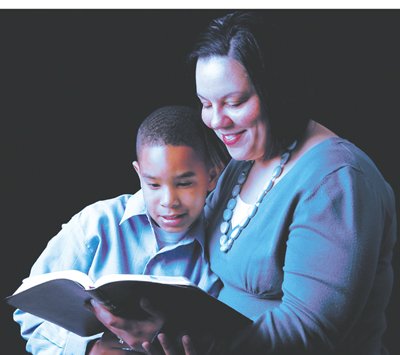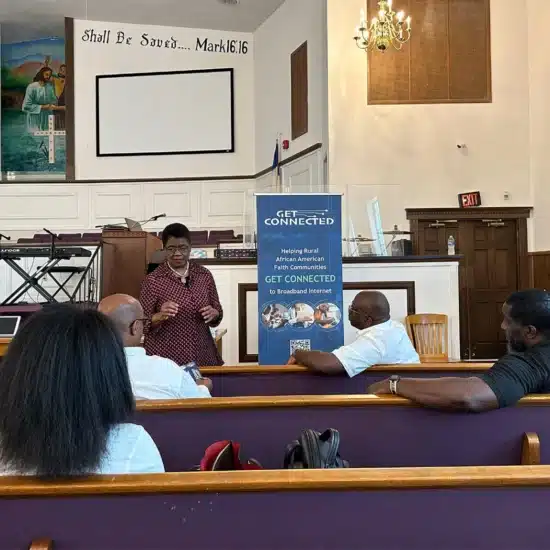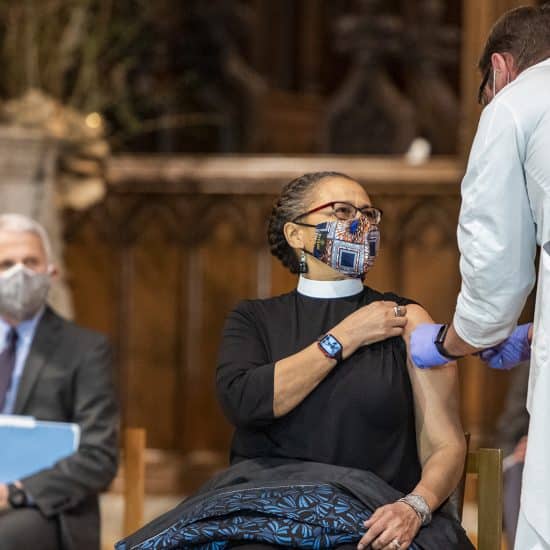Parents must take the lead in guiding children to love and learn the Bible, but the church should help, according to specialists in children’s ministry.
The process begins at birth, directing children toward God long before they even know about the Bible, explained Teri Shipley, family minister at Cornerstone Baptist Church in Lee’s Summit.
“I’m a big believer in starting a child’s spiritual development from the moment the child is born,” Shipley said. “When we’re rocking babies…, we tell them: ‘God made you special.… God gave you fingers and toes.’
“As a child gets older, we can begin to talk about themes: 'God loves us. God created us. We are to love one another.' The goal is to get children to understand God loves them.”
Such

Introduce your child to Scripture from the earliest moment, say specialists.
|
comprehension of God’s love forms a foundation for receptivity to knowing the Bible — God’s story, she said.
Parents and children’s Sunday school teachers are partners in helping children know and love that story, added Diane Smith, children’s ministry strategist for the Virginia Baptist Mission Board.
“We are working together,” Smith said, noting most congregations provide take-home materials for children’s classes, and parents can use that material to reinforce their children’s Bible study at home.
But the foundation for teaching the Bible to children is simple — read it to them, Smith stressed.
“Read Bible stories to them. Read the Bible to them,” she said. “And don’t quit. Parents often stop reading with children when the children learn to read. Don’t stop. Keep on reading.”
Diane Lane, the preschool/children’s ministry specialist for the Baptist General Convention of Texas, echoed that advice.
“Parents need to be reading the Bible at home,” Lane said, advocating parents practice the same techniques for reading the Bible with their children that also are used to build basic literacy.
For example, “hold the younger ones when you’re reading the Bible to them,” she said. This provides a sense of comfort and security, which children need. And when they feel comfortable and secure hearing the Bible, they transfer those positive feelings to their own feelings about the Bible.
Also, as children learn to read, parents should sit down with their own Bibles and read along as their children read from their personal Bibles, she said.
That points to another important step in developing love for the Bible, Lane said. Children should receive their own Bible “as early as age 3, if not earlier.”
Another significant tool for helping children learn about the Bible is reading from Bible storybooks.
Smith particularly advises parents who are new Christians to read to their children from a good Bible storybook. “As you read to the children, you, too, learn those stories. And you make them part of your life,” she explained.
Parents should supplement readings from Bible storybooks by reading the same stories directly from the Bible, Lane said. “Parents need to take the child’s own Bible and say, ‘Here is the story in our Bible.’ This helps children make the connection” between Bible stories and the Bible.
And whether children are hearing the Bible read to them or reading it themselves, they need a translation they understand, she advised.
“If they don’t understand it, they won’t continue,” she warned.
Children should be expected to take their Bibles with them to church, Lane said, noting children learn to understand the Bible is important when parents carry their own Bibles to church and instruct children to do the same.
Beyond carrying and reading the Bible, children should memorize Scripture, Smith suggested. “Children can learn a verse a week, and then you can talk about it — about how we live it out,” she said.
Incorporating Bible stories and Bible knowledge into daily life is enormously important, Shipley urged.
“Constantly talk to your children [about God’s love and Bible themes] as you go about your day,” she said, noting this is a central concept in the Old Testament book of Deuteronomy, which says: “These commandments that I give you today are to be upon your hearts. Impress them on your children. Talk about them when you sit at home and when you walk along the road, when you lie down and when you get up.”
Talking with children about faith is vital, Smith concurred. Children need to hear adults discuss their faith in terms of the issues and stresses of life. And they need to hear caring adults pray about those concerns. Faith can permeate every kind of discussion, she added.
Building biblical literacy and forming faith in children “means teaching about God’s love in everyday life,” Shipley said. “This sounds simplistic, but loving others isn’t simple, and letting God love you is not simple.”
A significant aspect of training children is helping them focus on God’s love and care, not on rules and judgment, she added.
“Rules make us feel comfortable, but they can put us in a judgmental frame of mind,” she said. “It’s important to teach children not to be judgmental.”
And teaching them to love and care for others can come naturally, she observed.
For example, when children hear a siren, teach them to pray for the people who must be hurting. “When someone approaches a door, open it for them. Learning to live out God’s love in their daily lives is going to make God’s love real for them,” she said.
Smith also encouraged churches to conduct a joint Bible study for adults and children in grades one through six, at least quarterly. This provides children and their parents with “common language” for discussing important topics, like baptism, the Lord’s Supper and tithing.
“Perhaps they will have the same language, and this will help them talk about these things at home,” she explained.
Materials for parent/child Bible studies include “Firm Foundations for Families,” produced by the Virginia Baptist Mission Board, and “Take it Home,” published by Gospel Light, she said.
If children are going to become biblically literate, then churches must teach parents how to teach their children about the Bible, Smith said.
“Think about faith formation: Seven-eighths of Christian education happens outside the church walls. The average ‘churched’ child receives 37 hours of Bible study in church per year, compared to 5,480 waking hours.… We can’t separate [the education of] children from their parents.”
Marv Knox is editor of the Texas Baptist Standard.






